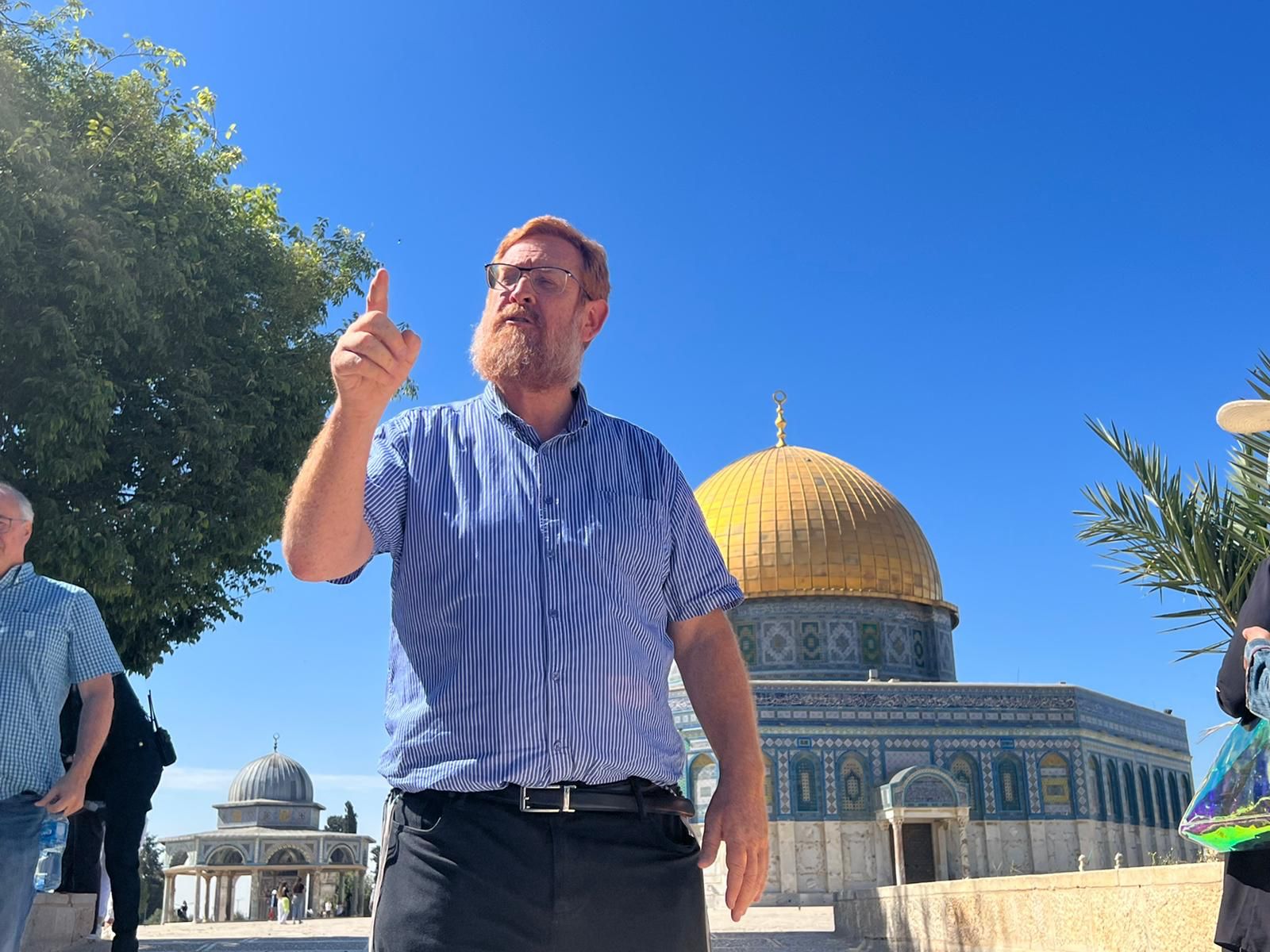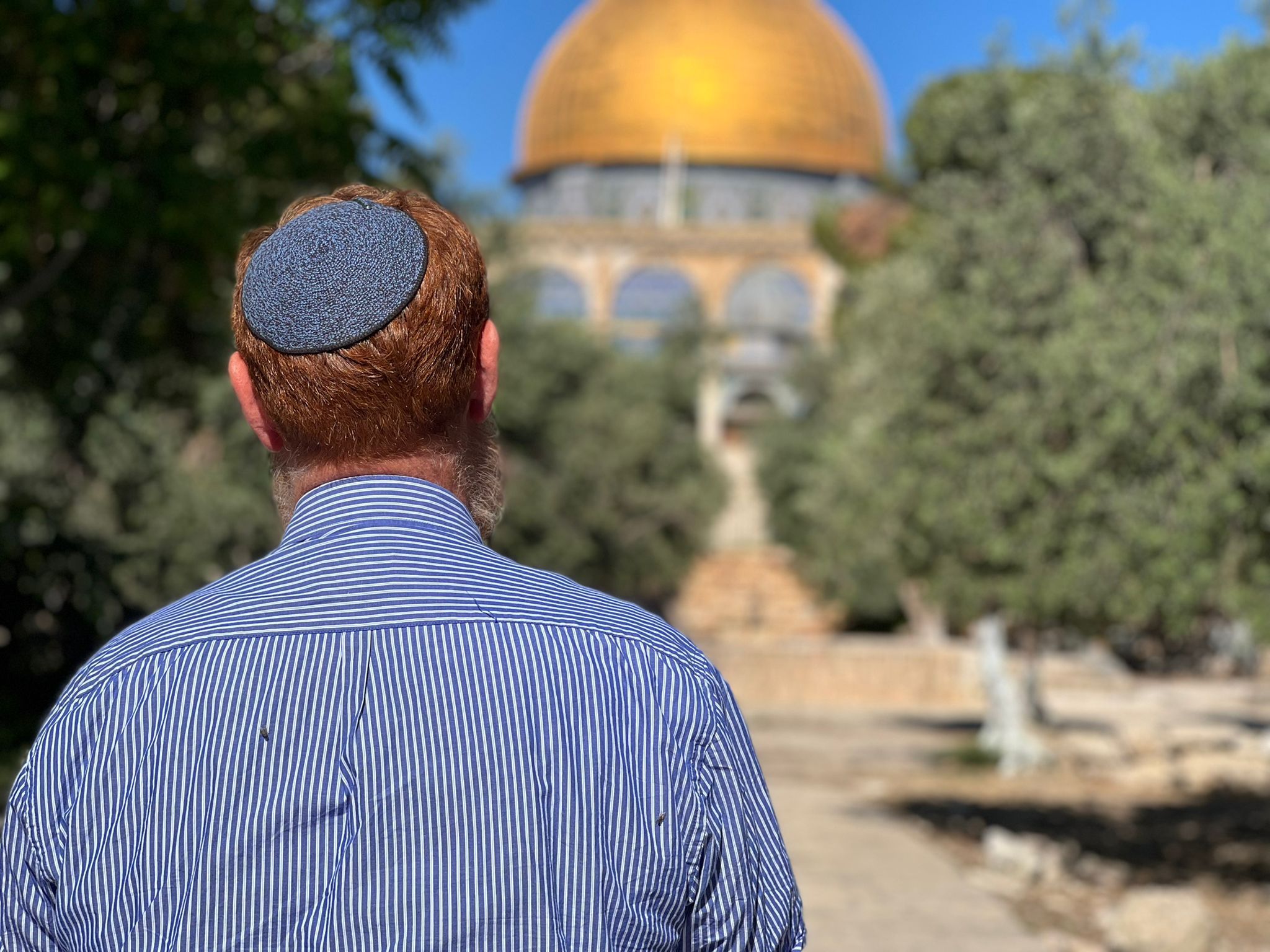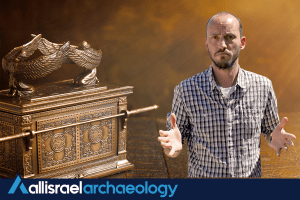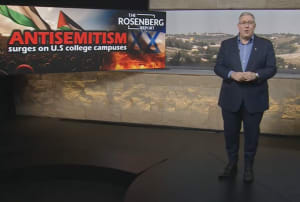Stop banning Jews and Christians from praying on the Temple Mount, Orthodox rabbi tells ALL ISRAEL NEWS – it’s time to make site a ‘house of prayer for all nations’
“It’s time to change the music on the Temple Mount,” former Knesset Member Yehudah Glick says, arguing it’s wrong to succumb to extremist pressure to ban Jews and Christians from praying in this sacred place. Will anyone listen?

JERUSALEM—Beginning the evening of Saturday, May 28, and running through Sunday, May 29, Israelis will celebrate “Jerusalem Day.”
This is the day on the Hebrew calendar (28 Iyar) that marks Israel’s reunification of the Holy City under its sovereign control during the Six-Day War of 1967, after the IDF defeated Jordanian forces that had previously controlled the city.
On the Western calendar, the “liberation of Jerusalem” occurred on June 7, 1967.
TEMPLE MOUNT TENSIONS RUNNING HIGH
With tensions already running high on what Jews and Christians call the Temple Mount and what Muslims call Haram al Sharif, Israeli security forces are bracing for trouble.
Just yesterday, ALL ISRAEL NEWS reported that Jerusalem Magistrate’s Court ruled in favor of three Jewish teenagers whom the police temporarily banned from going to the Temple Mount after they had prayed at the site on May 15 saying that it constituted “a disproportionate infringement on their freedom of movement.”
However, the court also made it clear that “this [decision] does not intervene with the police’s job in enforcing public order at the Temple Mount, nor does it determine anything regarding freedom of worship at the Temple Mount.”
Judge Zion Saharay criticized police for barring the teenagers from the Temple Mount and said that a public statement made by the police chief “clearly suggests that all residents of the country are allowed to enter the Temple Mount and pray.”
As our reporters noted, Israel currently allows Muslims to visit and pray on the Temple Mount, whereas Jews are allowed to visit, but not to pray or to perform religious rituals.
The policy is commonly referred to as “the status quo.”
The Temple Mount is the holiest place for Jews, as it is the site of the biblical First and Second Temples. It is a “widely reported reality,” however, at least in recent months and years, that Jews are frequently allowed to quietly pray on the Temple Mount.
The recent harsh condemnations from the Palestinian Authority and Hamas prompted Israel’s judicial authority to release an unusual message to the media stressing that the ruling “does not intervene” with police enforcement of the status quo policy.
“IT’S TIME TO CHANGE THE MUSIC” OF THE DISCUSSION ABOUT THE TEMPLE MOUNT
Yet a prominent Orthodox rabbi – who also once served as a member of Knesset – is arguing that the “status quo” makes no sense, hasn’t been consistently enforced over the years and is wrong to begin with.
Yehudah Glick – who last year made an unsuccessful bid to become Israel’s president – sat down with me at the King David Hotel in Jerusalem this week to discuss these matters.
He passionately made the case that the Temple Mount should be “a house of prayer for all nations,” a place for all people to pray – Jews and Christians included – not only Muslims, referring to the word of the Lord as recorded in the writings of the prophet Isaiah.
“I will bring [them] to my holy mountain and give them joy in My house of prayer. Their burnt offerings and sacrifices will be accepted on my altar; for My house will be called a house of prayer for all nations.” (Isaiah 56:7)
It is a case that he first made to me when we first launched ALL ISRAEL NEWS in the fall of 2020.
It is one that the rabbi feels all the more passionate about now, especially with all the talk in the age of the Abraham Accords about tolerance and religious freedom and mutual respect.
The question is: Will anyone listen?

Here is my interview with Rabbi Glick, lightly edited for clarity.
ROSENBERG: Okay, so let's start with your view, rabbi, which is that the Temple Mount should be open for prayer for everybody, right?
RABBI YEHUDAH GLICK: I think it’s a reasonable position, since the place is holy for all believers of the Bible. Christianity began in Jerusalem sees the site as holy. Judaism certainly sees our holy places there. And Islam definitely refers to the site as a holy place. So, it is a holy place and we should refer to it as the holy place and everyone should be able to pray there.
ROSENBERG: The challenge is that peace treaty between Jordan and Israel gives the Kingdom of Jordan a preferred or elevated status with regards to Muslim holy sites like the Dome of the Rome and the al-Aqsa Mosque, right? And the status quo, historically, has called for the prevention of Jews and Christians to pray on the site. Only Muslims can pray there.
[NOTE: Article 9, section 2 of the peace treaty states: “Israel respects the present role of the Hashemite Kingdom of Jordan in Muslim Holy shrines in Jerusalem. When negotiations on the permanent status [of Jerusalem] will take place, Israel will give high priority to the Jordanian historic role in these shrines.”
[NOTE: In 2015, then-Secretary of State John Kerry negotiated a series of agreements between Israel and Jordan known as the “Kerry Understandings” that more specifically clarified the issue of prayer. “The Kerry Understandings acknowledged Jordan’s special role in Jerusalem as defined in the Israel-Jordan peace treaty, including Jordan’s historic role as ‘Guardian of the Islamic holy places’ in Jerusalem, and reaffirmed the long-standing arrangements regarding prayer in the al-Aqsa Mosque allowing Muslims to pray there and non-Muslims only to visit the site,” noted a report by the Jerusalem Center for Public Affairs.]
GLICK: I don't know what the word “status quo” means. I know until the year 2000, the Temple Mount was open on Shabbat. Now it’s not.
A year and a half ago, the Muslims opened a new mosque at the Golden Gate.
Is that status quo? No, there is no status quo. There's no such thing. Human beings change. Life is dynamic. Democratic theology believes that if something's wrong, you should change it.
So, there's nothing holy about status quo. It's not a religious concept.
I would say, let’s start not from what is controversial.
Let’s start with what is agreeable.
Do we agree that stockpiling stones all over the Temple Mount to throw at Jews and policemen should be forbidden?
Do we agree that filling a mosque with the stones that can kill should be forbidden?
Do we agree that violence and hate shouldn’t be acceptable in a holy place for anybody?
Let’s start there.
The fact is that for 55 years the Temple Mount was supposedly open for everybody.
For many years, there were tourists who were able to visit the mosques.
ROSENBERG: I was able to actually enter and tour the Dome of the Rock when I came to Israel to study at Tel Aviv University in 1987.
GLICK: Exactly. So, what happened to the status quo? Why can’t tourists visit the Dome of the Rock now? Why is that not considered a changing of status quo?
My point is, there was never really a status quo that has been enforced. It never existed.
I can tell you, at least for the last ten years that I know about, Jews have been praying on the Temple Mount.
Over the last five years, there has actually been a minyan [at least 10 Jewish men] praying on the Temple Mount every single day, morning and afternoon.
It happens quietly. As long as nobody does anything provocative or something against somebody, it’s not a problem. If you're doing something positive, there shouldn't be anything wrong.
Violence is the problem. And I say again, the time has come that we should agree that violence should not be allowed there.
We have to change the music on Temple Mount.
Prayer should not be controversial.
Let's talk about these issues.
It can’t be that a [Jordanian] king and the chairman of the Palestinian Authority can condemn an Israeli court that allows prayer on Temple Mount, which is basic law in Israel, that you have freedom of worship, freedom of accessibility.
What bothers me, too, is that neither of them are willing to condemn violence or stone throwing or filling the mosque stone.
This year, when Pesach [Passover], Ramadan and Easter all fell together, there was a chance that we could all pray. This holy place could have been so beautiful.
Instead, we have leaders legitimizing all this kind of violence.
And then the American administration condemns Israel for entering the mosques to protect worshippers and to empty out the place of all the stones.
We should take responsibility together for protecting this holy place – everybody, the Israeli government, the Israeli police, the Muslim leadership, all believers in the world.
Again, let’s change the music on Temple Mount.
Let's make sure the Temple Mount is no place for any kind of harassment, of incitement, of terror, of violence.
Let's sit with the leaders of the Waqf [the Islamic charitable trust that administers the Muslim holy sites in Jerusalem].
Let's sit with King Abdullah.
Let's sit with the Israeli authorities.
Let’s reject violence.
And let’s make a place for what’s really acceptable.

ROSENBERG: What specifically would you like to see happen?
GLICK: Look, I can agree that during certain days of Ramadan, when the place is packed with Muslims, that yes, we can wait aside. We can close the Temple Mount to Jews. I don't see anything wrong with that.
But this year, the Israeli government did something pretty stupid. They said the Temple Mount is going to be open to everyone. Suddenly there was violence. And then the government said, “Oh, no, no, no, no, we're going to close it. No one but Muslims can enter the Temple Mount.”
And what message did that send?
That Israel is weak.
That if Muslim extremists use violence, Israel will close the Temple Mount to Jews.
ROSENBERG: So, what should Prime Minister Naftali Bennett do going forward?
GLICK: He should announce next year on day one of Ramadan, “Listen, for the first two weeks, three weeks, everybody can go up to the Temple Mount. But on the last 10 days, it will be only for Muslims.”
That shows leadership.
That shows consideration to all people.
But if the holy place is going to be managed by violence, then we’re actually inviting violence.
I say the time has come for all of us to take responsibility to make sure no violence occurs in this holy place.
We have to change the music.
We have to say, “Yes, all believers in the world – Jews, Christians and Muslims can come to Temple Mount and pray.”
Let's turn the place into a place of singing.
Let's make the place holy again.
Listen, the Temple Mount platform is 25 times the size of the Western Wall area.
There is room for everybody.
What is wrong with Christians going up there and holding the Bible and reading the Bible?
Look, I think when I was in Istanbul, I prayed in the mosque.
When I go to Haifa, I can go and pray in the mosque and be welcomed.
What's wrong with praying on the Temple Mount?
Come on.
Extremists are using the site as a tool.
They are using the holy place as a tool to promote a political agenda.
They want to fight Israel.
We have to decide to change the music.

Joel C. Rosenberg is the editor-in-chief of ALL ISRAEL NEWS and ALL ARAB NEWS and the President and CEO of Near East Media. A New York Times best-selling author, Middle East analyst, and Evangelical leader, he lives in Jerusalem with his wife and sons.













